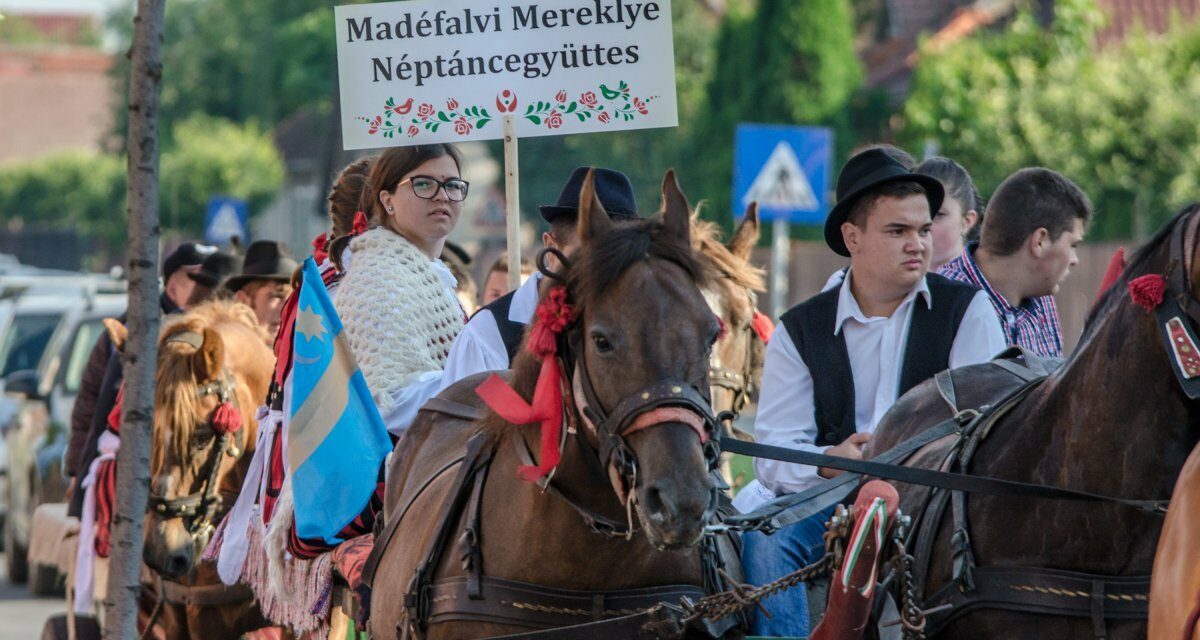For 12 years - except during the epidemic period - Csíkszereda's atmospheric event for the Thousand Székely Girls' Meeting has been the procession of groups from the surrounding villages wearing Székely clothes on carts or on horseback to the center of the Harghita county seat, where the participants also present a joint dance on Szabadság Square.
Due to the epidemic situation, the parade was canceled in 2020 and last year, which is why the official announcement that it will not be held this year also caused outrage and confusion. The basic reason was the reference to Article 71 of the Traffic Code adopted by the emergency government decree of 2002, which has been amended and supplemented many times since then, because it prohibits the movement of carts and horsemen in the territory of cities with county rights.
According to the information published on the website of the main organizer Hargita Nemzeti Székely Népi Együttes, the police cannot allow the parade of more than 90 carts, carriages and 60-70 horsemen due to the legal prohibition. Since the ban has been in effect for 20 years, but the parades started after that, and similar events are also organized in other cities, the official explanations only increased the indignation, which most people voiced in the large groups of the most well-known social media site.
The gloom did not dissipate even then, in fact, it further thickened when the town hall also joined the battle of words on the social media site and further explained: " Before the epidemic, we always managed to find a solution to similar movements on a basis of trust and in a well-organized manner. However, due to the epidemic situation, the legality environment has been constantly changing, and the prefect's institution's letter of June 3, 2021 drew attention to possible pitfalls, projecting stricter official controls," was the justification, which did not reveal that the law had changed at that time -e (not by the way), or the prefect wants to add something to the legislation, as the courts did during the lawsuits against the Székely flags.
For some reason, no one spoke about it, only the commentators objected to why it was not possible to temporarily, for a few hours, introduce traffic restrictions on the affected streets for the duration of the parade, stopping the car traffic there, thus eliminating the danger to the participants of the traffic. As it happens in other cities, for example in Brașov, where on the first of May this year, several streets of the old town were temporarily closed to hold the traditional horse parade of groups of younger and older men from Brașov (Junii Brașovului) dressed in national costumes, with more than 200 riders.
The events accelerated by Thursday, which was evident from the fact that the situation completely changed in just two hours. ... Still, there will be a chariot and horse procession on this year's Day of the Thousand Székely Maidens, the participants will be able to go up a closed section of the road in the direction of the church of grace, and then to the saddle in Somlyó. They learned from Mayor Attila Korodi that the radical change is underway, and it is conceivable that there will be a parade after all. Just over half an hour later, the city manager came forward with good news, as he said that the agreement had been reached, the police would allow the temporary closure of the affected sections of Decemberi Forradalom, Márton Áron and Szék streets from road traffic at the request of the city hall. In this way, groups of riders, carts and carriages from the settlements can enter Szabadság tér, the vehicles can be left on the empty green belt on the lower section of Temesvárút. Together, they continue to the Csíksomlyó mountain saddle on the closed streets. "There is legal security with the road closure, but at the same time, the police also help in directing those coming to the city," outlined the mayor, who said that the amendment to the law is essential, because it is impossible to organize such important events in a compromise way that pushes the limits of regulation. He assessed that they tried to find a solution to a situation for which no one is to blame...
Source: Székelyhon.ro
(Header photo: Attila Pinti)













